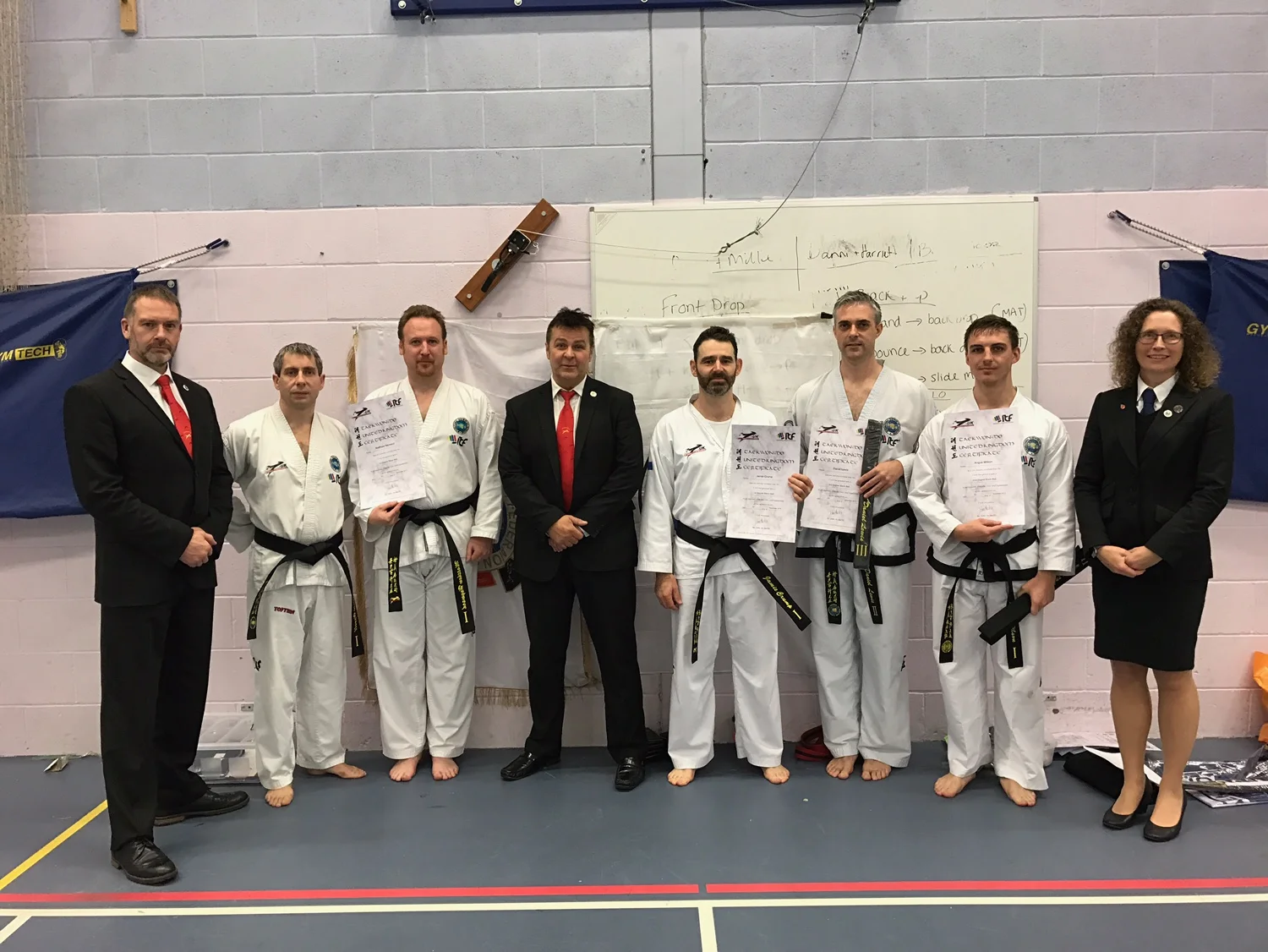The Central region including Warwick and Kineton clubs were well represented at todays T-UK England grading held at Stratford Upon Avon. The 2 clubs had an excellent day with success across the board. Each and every student stepped up and performed to an excellently and continued the very high standard that we always strive to achieve, well done all.
In light of the black belt grading coming up this weekend, I came across this article today which I feel has a massive relevance to black belts running a club, and students looking to develop themselves and open a club up. It's not just about being able to perform techniques or deliver a class its about leading and leading by example. Good quality leadership skills results in respect from peers and students, the willingness of those around you to go above and beyond, to give discretionary effort, and ultimatly growth in the club, both in respect of individual students as they are mentored by your actions and attitude and the growth of the club as a whole:
We are about to launch a women's only self defence course which will be run over a 6 week period, one session per week. This is designed for women to empower and equip them with skills necessary for walking the streets with confidence, delivering knowledge and skills to be more aware of potential situations, diffuse this if possible and if they are unlucky enough to be involved in a violent incident, to be able to effectively deal with that situation.
Kicking arts such as TKD requires the lumbar spine and core to be mobile and strong as a lot of stress is put through it whilst conducting kicking movements as well as when correctly delivering blocking and striking techniques. A number of you might find that you are having a lack of mobility and pain in this area potentially caused by the riggers of what we do as an art.
The FGM Rhee seminar is being held in Wiltshire on Saturday 12th November (the day before the black belt grading). I need to inform the organisers of attendance ASAP. Please let me have your interest by the end of tomorrow (1st November). Once I have all the names I can look at organising car sharing etc.
Many of the rehab posts I put up are focused on the lower body due to the fact that TKD is a kicking art and this area is pertinent to many of us. However in martial arts our shoulders and in particular the rotator cuff can take a battering with repetitive movements, the dynamic nature of blocking against an opponent or trauma during sparring. As the shoulder joint is not load bearing, when its injured we probably don't experience the same constant discomfort and pain that we might with our hips. Due to this we can tend to ignore these pains and discomfort when training and find ways around the limitations it brings or just stop doing certain conditioning exercises altogether due to the pain and instability.
Staying healthy and injury free in martial arts is an ongoing battle due to the very nature of it and the physical requirements, its not like playing tiddly winks or ping pong! There is a requirement to balance training, active rest, rehabilitation, diet and sleep. Here are a few rules to assist you in your quest for injury free training:
n the kicking arts we can sometimes suffer from painful and achy hips that seem to be "tight" however is this always the issue?! Sometimes we just need to assist the hips and the muscles around it to activate correctly instead of going back to our fallback position of more stretching and mobility work.
We get people starting martial arts for all sorts of reasons, general conditioning, fitness, weight loss, learn a new skill, socialisation but we also get people start for psychological reasons - self-confidence, self-esteem, anxiety, to cope with bullying; the martial arts are an excellent tool to assist these people. Due to this sub set of people I have decided to post the below on further supporting these people as every little bit of assistance can help to enable them to cope and improve.
The inventions of apps means we now have mental health tools right in our pockets. Keeping track of your mood, finding ways to cope and monitoring your mental processes are all activities that might sound like a slog, but the majesty of modern technology means they can be fun too.
Here are 5 apps that can really help make a difference when it comes to your mental health:
Hip flexor and adductor issues are common challenges in Taekwon Do due to the dynamic nature of what we do. However this risk of injury is exacerbated with students that try to over extend themselves too soon, getting ambition and ability mixed up, as well as instructors who haven't been keeping up with their conditioning and training on a regular basis and then start to over extend themselves from their current de-conditioned position.


